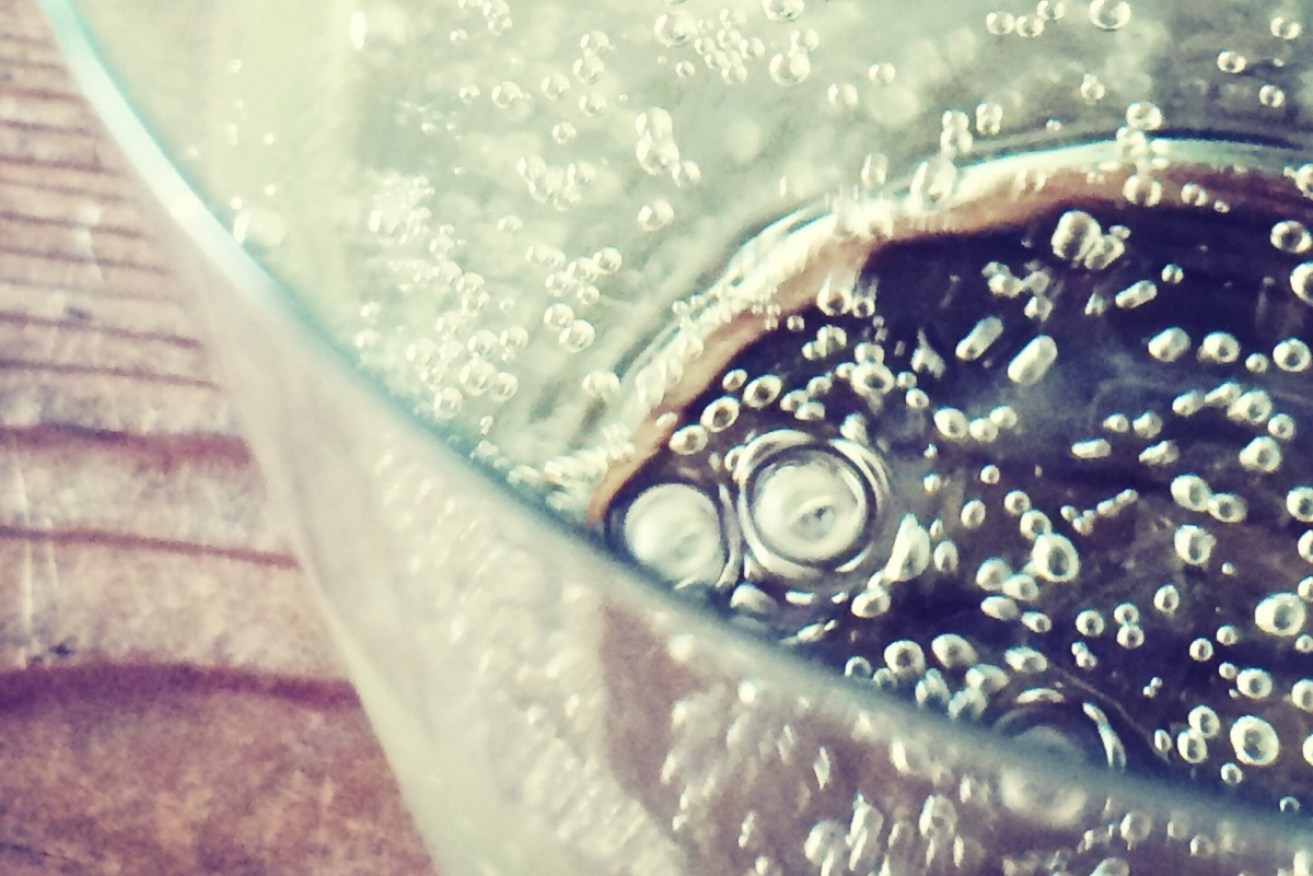The truth about sparkling water and your diet


New research threatens to debunk the theory sparkling water is good for you. Photo: Getty
Unflavoured sparkling mineral water is the go-to choice for those who want to stay healthy but still enjoy a few fun bubbles.
However, new research conducted by Birzeit University in Palestine has raised concerns the carbonated beverage may not be as slimming to our waistlines as we’d thought.
While it’s well established the added sugars in many fizzy drinks contribute to weight gain, the carbon dioxide component (added to create that effervescence) has been less explored.
To probe the possible health effects of carbonation upon obesity, the researchers fed male rats four different types of beverages: tap water, a regular degassed (flat) beverage, a regular carbonated beverage and a diet carbonated beverage, and allowed them to eat as much as they liked.
The year-long study, published in the journal Obesity Research and Clinical Practice, found the rats fed the carbonated beverages put on substantially more weight and accumulated more liver fat than those given the tap or degassed options.
The rats fed on the carbonated drinks secreted more of the hunger hormone, ghrelin, and the researchers proposed this was the mechanism causing them to eat more food and put on weight.
A parallel experiment on 20 male students found those consuming carbonated beverages secreted higher levels of ghrelin compared to those on the non-carbonated ones.
What’s the take home message for consumers?
Robert Boakes, an emeritus professor in the Faculty of Science, and his colleagues at The Cluster for Public Health Nutrition in Sydney, said the public should exercise caution in interpreting the results of the study.
Circulating media reports have inferred sparkling mineral water might contribute to obesity. However, Professor Boakes pointed out that sparkling mineral water wasn’t properly studied, if at all.
“There’s nothing in the study that says sparkling mineral water is bad for you. If you wanted to show that, you’d simply compare ordinary water and carbonated water – but they didn’t do that.”
Professor Boakes and his colleagues said the small sample size of the study was another reason for caution.
He added: “Since there was no data on the weight gain of the human participants, it was complete speculation to suggest a link between these ghrelin measures and any long term effects of carbonation on human weight gain.”
In fact, carbonated water is known to create a temporary sensation of fullness, as evidenced in a 2012 Japanese study.
The greater evil
“What the study suggests is that the carbonation found in drinks like Coca Cola or Diet Cola may make them even worse. These colas contain caffeine and other constituents, as well as sugar or low calorie sweeteners, and it is possible that these other constituents interact with the carbonation in a way that could affect ghrelin and weight gain.”
Artificial sweeteners (commonly found in many fizzy drinks) have been associated with health issues. Professor Boakes’s colleague, Michael Kendig, said, “what jumps out to me is that the diet group appear to gain more weight than controls, but less than rats given sugary soft drinks.”
When not laced with added sweetening ingredients such sugar, sparkling water has no known significant health risks, Professor Boakes concluded.
“The only problem with carbonation is it rots your teeth because it’s acid. The combination of carbonation and sugar is worse for your teeth than just flat sugar drinks.”
Pending further research, it’s probably safe to enjoy that sparkle in your water.








